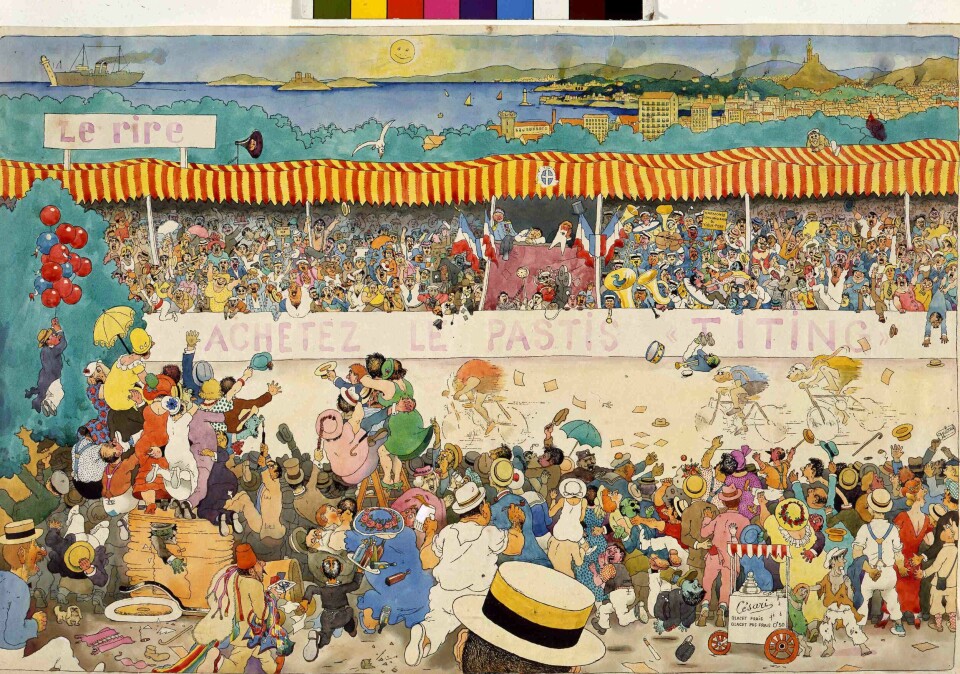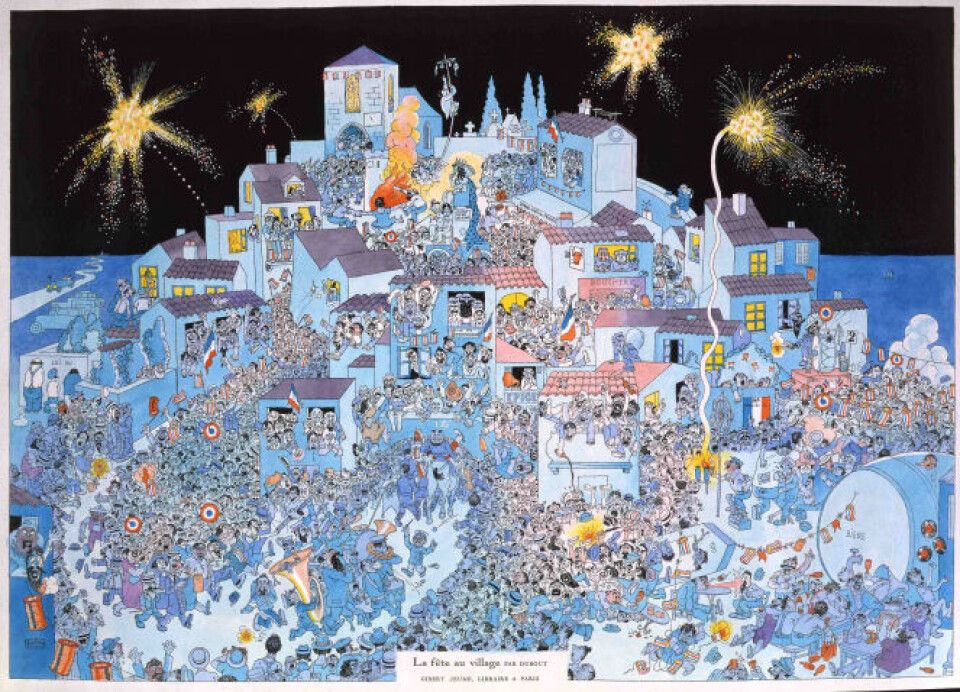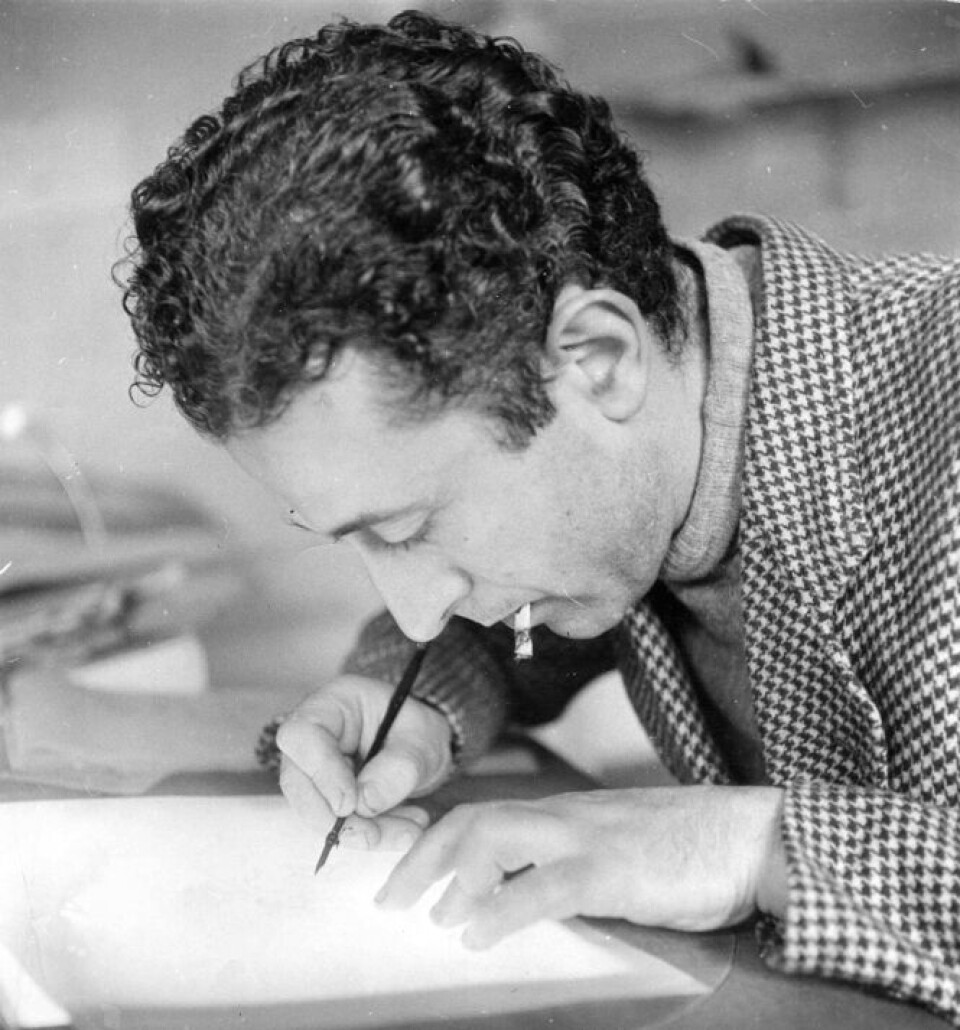-
Duck Cold! Four French phrases to use when it is freezing outside
We remind you of French expressions to use to describe the drop in temperature
-
When and why do we say le moral dans les chaussettes?
We explore this useful expression that describes low spirits
-
David Hockney among France’s New Year honours list
Former Normandy resident awarded second grade of honour
Exhibit celebrates French illustrator Albert Dubout’s eye for satire
Dubout was famous for his drawings of cats, but also loved to depict the French people, as a new exhibition at the artist’s museum near Montpellier shows

A new exhibition shows how one of France’s most celebrated illustrators captured the country’s transition to modernity.
The exhibition, Dubout dessine les Français at the Musée Albert Dubout in Palavas-les-Flots (Hérault), marks 30 years since the museum opened on July 14, 1992.
From 1924 to 1973, Dubout worked with almost 250 newspapers and magazines, and created 88 film and advertising posters, 78 paintings and illustrated 70 books.
The drawings featured in the latest exhibition include Printemps, which shows Parisians discovering en masse the joys of the countryside after paid holidays were introduced in 1936.
The artist’s grandson, Didier Dubout, told The Connexion: “Jean d’Ormesson used to say Dubout was the cartoonist of paid holidays, mass society, and consumer society.”

Many of his drawings feature an instantly recognisable large woman and her tiny husband, which his grandson says was an early stand against domestic violence.
“He wanted to inverse the roles. Having a large man striking his wife was not very interesting, but a woman tormenting her small husband made people laugh.
“He was also, as early as 1924, the cartoonist of women’s social and sexual liberation. There is one drawing of a woman on the side of the bed beside her lover, and the caption says ‘It was better with my husband’.
“He was as funny in life as in the drawings, totally off the wall,” Mr Dubout said of 'le grand-père'. “For example, he invented an alarm system, with plaster of Paris above the shutter, so if a burglar entered, they’d be covered in plaster. He opened up, having forgotten he’d put it there, and so he got covered. He found it funny.”
Although popular around the world, Dubout always refused to hold exhibitions while he was alive, preferring to spend time in his studio. “He would say, ‘I am the greatest French cartoonist and I am working for posterity’,” Mr Dubout said.

The time spent working ‘day and night’ is evident in the drawings, some of which resemble ‘Where’s Wally?’ pictures, as they feature up to 1,000 characters. He also released two films during the 1950s, which he made during the German Occupation.
“Walt Disney saw them and asked him to be his studio director and told him to name his price, but my grandfather refused.”
His popularity was partly due to the fact he was “never vulgar”, says his grandson. Here Mr Dubout’s wife, Ylonka, who grew up in New Jersey, felt the need to interject. “For Anglo-Saxon Protestants, some of his drawings are very out there and erotic. That’s so cultural. Didier can’t see that.”
Mrs Dubout, who organises exhibitions of the artist’s work with her husband, said the drawings can help foreigners understand French society, including Printemps and its depiction of holidays. “When we went to Nice this summer, my daughters didn’t even want to go to the beach,” she said. “There was not one speck of sand to put a towel on, and I said ‘Oh my God, it’s a Dubout drawing!’.”
Dubout is also known for his many drawings of black and white cats. “He always had cats, it was a real passion,” his grandson said. “Nobody was allowed into his workshop, including my father… except the cats.”
A joint exhibition is planned in Brussels with the work of Belgian cartoonist Philippe Geluck, who has his own famous cats, once his own museum has opened.
Tickets to Dubout dessine les Français cost €5 (children free). It will run until March 31, 2023.
Products featuring some of Dubout’s illustration are available via our Connexion shop. See here.
























